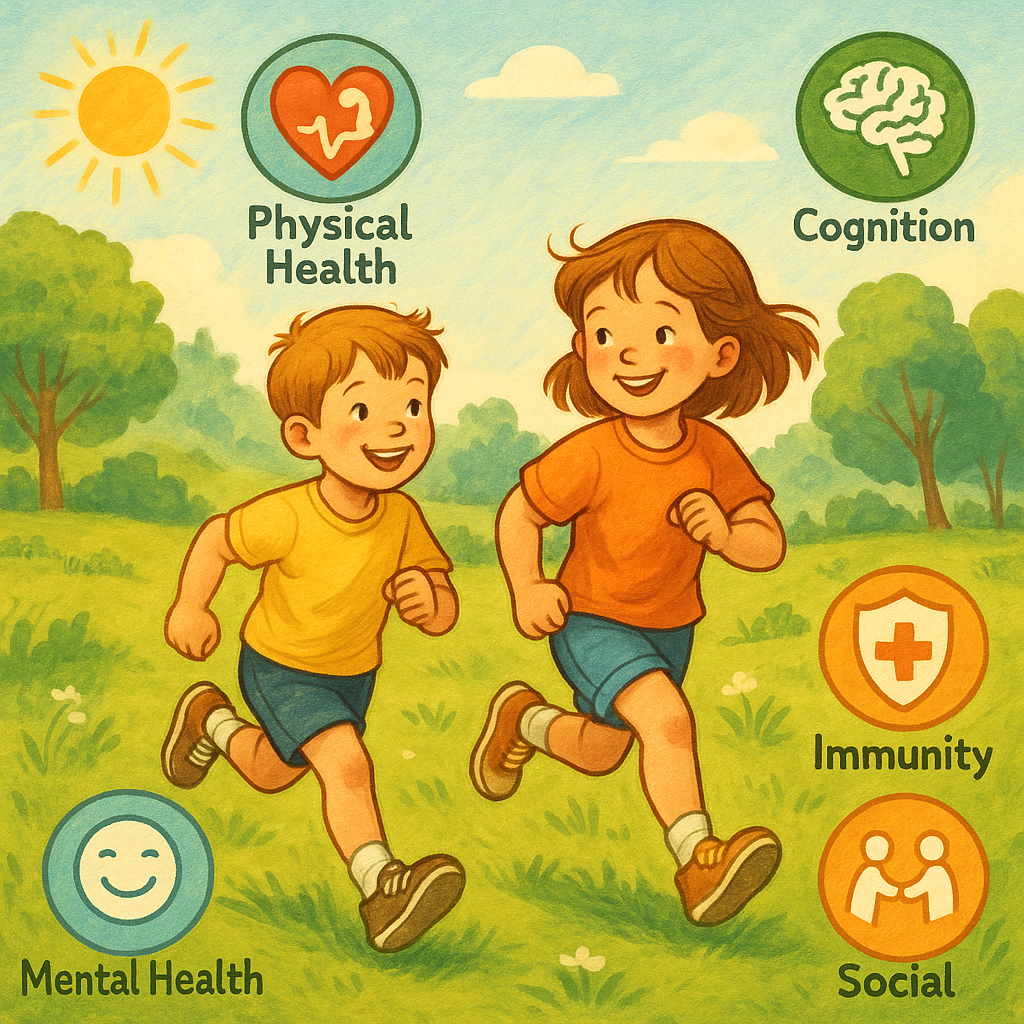
The Powerful Impact of Outdoor Physical Activity on Children’s Development: A Science-Backed Exploration
Share
In today’s technology-saturated world, children spend more time indoors, often glued to screens, which has led to growing concerns about their physical and mental health. Outdoor physical activities offer far-reaching benefits that extend beyond exercise, fostering holistic growth in children. Backed by scientific studies, let's explore how outdoor activities shape healthier, happier kids.
1. Physical Development and Fitness
Outdoor physical activities, such as running, cycling, and playing team sports, promote cardiovascular fitness, strengthen muscles, and support motor skill development. According to a study in Pediatric Exercise Science (2019), children who engaged in at least 60 minutes of outdoor physical activity daily showed significantly improved body composition, cardiorespiratory endurance, and agility compared to sedentary peers (Smith et al., 2019).
Additionally, outdoor play stimulates proprioceptive and vestibular systems, enhancing balance and coordination (Gray et al., 2015).
2. Mental Health and Emotional Well-Being
Nature-based activities contribute profoundly to children’s emotional health. A meta-analysis in Frontiers in Psychology (2021) found that outdoor physical activity significantly reduced symptoms of depression and anxiety among children and adolescents (Tillmann et al., 2021).
Natural environments have a calming effect, helping to lower cortisol levels and improve mood regulation.
3. Cognitive and Academic Enhancement
Outdoor play boosts cognitive flexibility, creativity, and attention spans. Research from Health & Place (2018) demonstrated that children attending schools with outdoor green spaces performed better in attention-based tasks and exhibited improved working memory (Kuo et al., 2018).
Moreover, outdoor physical activity supports executive function development, aiding problem-solving skills essential for academic success.
4. Social Skills and Resilience Building
Team sports and group outdoor activities foster essential life skills such as communication, teamwork, empathy, and leadership. Journal of Adventure Education and Outdoor Learning (2020) emphasized that children engaging in outdoor adventure programs developed greater resilience, adaptability, and confidence (Leather et al., 2020).
5. Immune System Strengthening
Exposure to diverse outdoor microbes supports the maturation of children's immune systems. Science Advances (2020) highlighted that children who played regularly in green outdoor environments exhibited a healthier gut microbiome and lower risk of allergies and autoimmune diseases (Roslund et al., 2020).
Conclusion
Outdoor physical activity offers a treasure trove of developmental benefits for children — from physical health and emotional well-being to cognitive growth and social resilience. Parents and educators must prioritize opportunities for kids to play, explore, and move in nature-rich settings to promote their lifelong health and happiness.
References
-
Smith AL, Troped PJ, McDonough MH, DeFreese JD. The benefits of structured outdoor activity for youth. Pediatr Exerc Sci. 2019;31(1):45-53.
-
Tillmann S, Tobin D, Gilliland J, Clark AF, Chu LM. Mental health benefits of interactions with nature in children and teenagers: A systematic review. Front Psychol. 2021;12:639939.
-
Kuo M, Browning MH, Penner ML. Do lessons in nature boost subsequent classroom engagement? Refueling students in flight. Health Place. 2018;54:143-151.
-
Leather M, Beames S, Cooley SJ. Building resilience through outdoor adventure: A systematic review of studies with children and youth. J Adventure Educ Outdoor Learn. 2020;20(4):1-16.
-
Roslund MI, Puhakka R, Grönroos M, et al. Biodiversity intervention enhances immune regulation and health-associated commensal microbiota among daycare children. Sci Adv. 2020;6(42):eaba2578.
